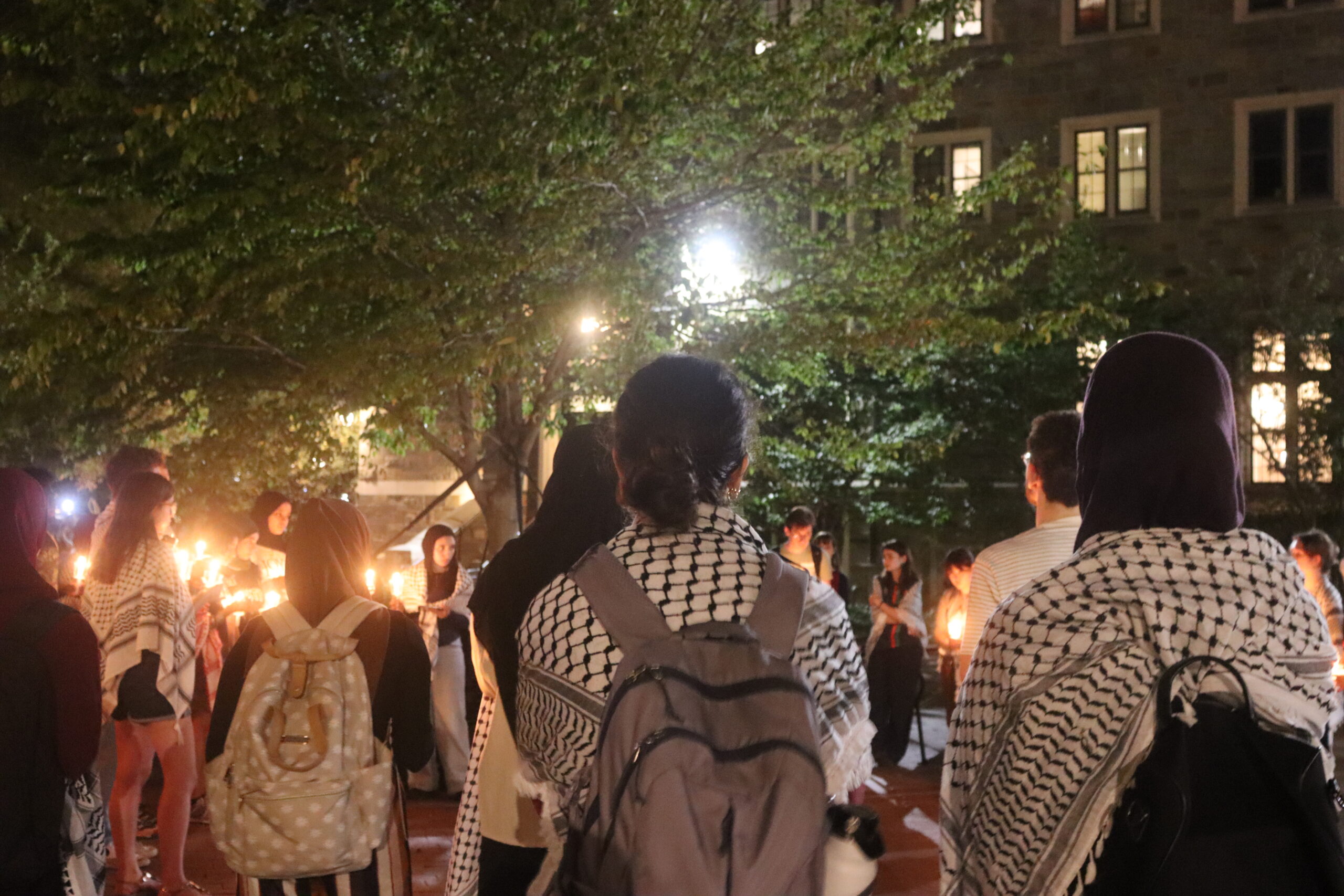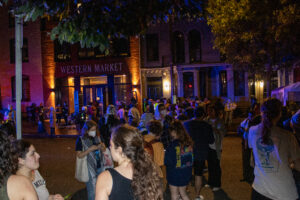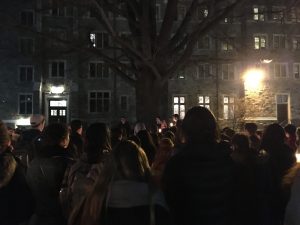Over 70 students gathered to attend a candlelight vigil held by Georgetown University Students for Justice in Palestine (SJP) in Red Square at 7 p.m. on Oct. 7. The event is part of SJP’s Week of Rage from Oct. 6 to Oct. 10, which will host events to educate the Georgetown community and demand action.
The vigil comes two years after the Hamas attack on southern Israel on Oct. 7, 2023, which killed around 1,200 people. Since then, Israeli attacks have killed at least 64,964 people in Gaza. A United Nations commission of inquiry concluded on Sept. 16 that Israel has committed genocide against Palestinians in Gaza and is continuing to do so. On Oct. 9, a ceasefire between Israel and Hamas was announced.
“We’re here today in rage and mourning to honor all our martyrs of these past two years of escalated genocide in Palestine, Lebanon, Syria, and Yemen,” a SJP speaker said at the vigil. “This community right here is proof of the fact that we will never forget, and we will continue to channel our grief, our rage, our sadness into something more, into organized collective action.”
Before the event, attendees lit candles. Many attendees wore keffiyehs, a traditional Arab headdress often worn to symbolize solidarity with the Palestinian people.
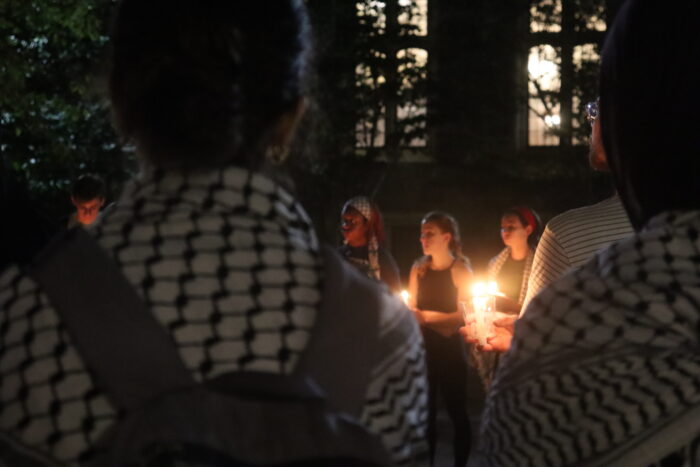 Photo by Chih-Rong Kuo
Photo by Chih-Rong Kuo
The vigil began with a tribute to Hossam Shabat, an Al Jazeera journalist killed in an Israeli attack on Gaza on Mar. 24, 2025. The SJP speaker read out Shabat’s final statement before his death. Following the tribute, attendees observed a moment of silence.
The SJP speaker also criticized Georgetown University for rejecting the Spring 2025 divestment referendum. Students voted in favor of a referendum calling on Georgetown to divest from companies connected to the Israeli military. Interim President Robert M. Groves announced shortly after that the university would not follow the referendum’s demands.
Two speakers read out the names of Palestinians killed in the war. An individual representing both the Lebanese Student Association (GULSA) and Arab Society also spoke.
“There’s nothing that I can tell you that you haven’t already heard over the past two years or longer than that,” the GULSA speaker said. “I could tell you to keep resisting to honor those that we have helplessly watched be killed, but that is why we’re all here tonight.”
The speaker also shared a poem that they wrote, where they compared displaced Palestinians to scattered seeds finding a place to take root.
“We grow united, sprouting and reaching and yearning, fighting for our voices to be heard, we find each other,” the poem wrote. “Taking on the names of those left behind, those in the homeland, but still uprooted.”
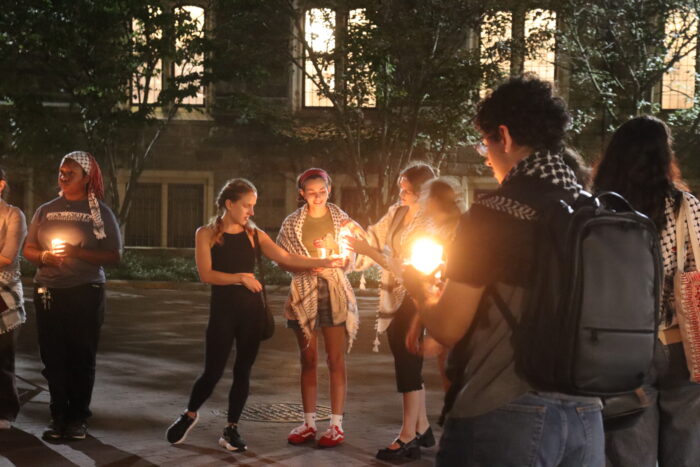 Photo by Chih-Rong Kuo
Photo by Chih-Rong Kuo
SJP invited members of the audience to read from a selection of poems and testimonies by Palestinians. Lukas Soloman (SFS ’26), a student who attended the vigil, read out the poem “Fuck Your Lecture on Craft, My People Are Dying” by Noor Hindi.
“It was honestly very cathartic,” Soloman said in an interview with the Voice. “It captured a lot of what I’m feeling about the dissonance of having to go to school, go to work, live my life as normal when we’re reckoning with the dystopian.”
Soloman said that the collective grief that Arabs have experienced has been exhausting and isolating. For him, the vigil was a reminder that a community in support of the Palestinian people still exists.
Anna, a student who declined to share her full name with the Voice, citing concerns of repercussions, said the vigil was emotionally heavy. In particular, Anna said the testimonies, poems, and reading of names contrasted with the media sensationalization of death tolls, which they said dehumanizes the Palestinian people.
“When you read the media, it’ll say 20 Palestinians killed overnight. But we need to remember that each of these 20 people were an entire universe,” Anna said. “Taking time out of our day to not only say these names out loud, but also hear the stories from these people is incredibly important.”


